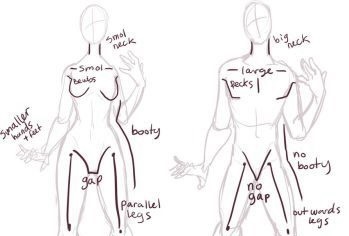Jan Bergstra & Laurens Buijs
Amsterdam Gender Theory Research Team
Work on gender theory is considerably complicated by the ambiguity of the notion of biological sex. Under this term lies a variety of notions that one would prefer precisely not to lump together.
We therefore propose to introduce a new concept: bodily gender (= bodily sex, English: bodily gender or bodily sex). This is the gender as can be determined from the biology and/or morphology of the body. The notion of bodily gender changes over time, and even differs in meaning from jurisdiction to jurisdiction.
In the past (say 1900 or earlier), physical gender was the same as morphological gender as determined at birth. But (a vague estimate) around 1970 physical gender takes on the meaning of biological gender in the modern sense. Biological gender is based on chromosomes, gonads, gametes and hormones (there is room for variation in these as well).
The complexity of gender theory comes into focus with the following observations:
(i) That bodily gender first is not transition permissive. Around 1900, no one needed to consider gender transition, and people did not (see Gender-1900 of the first ICE reference model in our piece on concept engineering, blog AGTRT-BF38).
(ii) That bodily gender is initially transition permissive. In Gender-1975 of the first ICE reference model, gender transition is explicitly possible.
(iii) That further on in time, bodily gender turns out not to be transition permissive. In Gender-1995 of the first ICE reference model, biological gender in the modern sense is now taken as the starting point and seen as bodily gender.
More specifically, in blog AGTRT-BF37 we wrote about Marcus Dib. Dib’s (current) bodily gender is female in Gender-1900, male in Gender-1975, and female again in Gender-1995 and subsequent notions of formal gender in the first ICE reference model.
Because the dynamics of the meaning of bodily gender have little to nothing to do with concept engineering of formal gender and can be analyzed and thought through independently, bodily gender is a useful new concept that can help bring the subject matter into better focus.

Leave a Reply